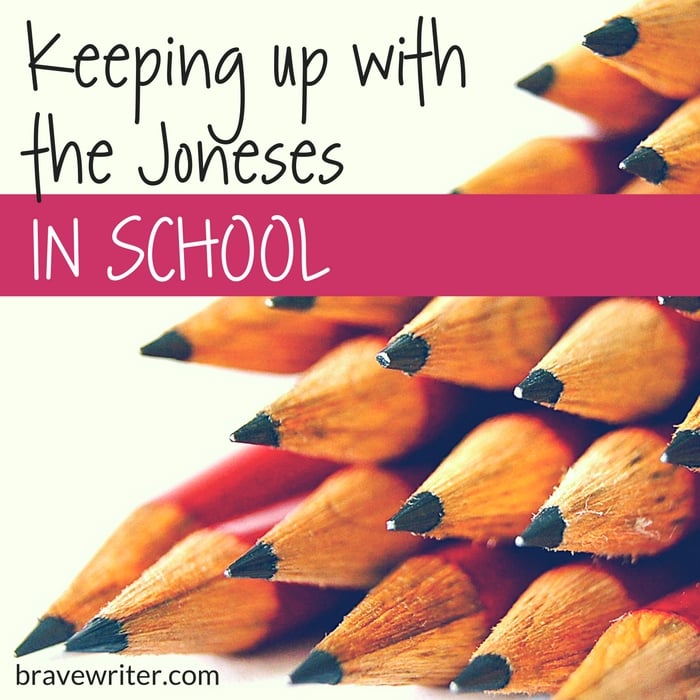I sometimes forget that we get new people interested in Brave Writer all the time. One of the distinctives about this company is that my primary objective is to offer you as much support as you need to keep you and your kids writing. You don’t simply purchase a book from Brave Writer and slink off to a homeschooling island to use it. Brave Writer provides you with opportunities for feedback and follow-up support because, frankly, writing is a community project. No one successfully writes in isolation. Even more, fledgling editors (you) need the eagle-eyed help of more experienced editors. That’s why we have a staff to handle classes and to answer your writing/language arts questions.
So use us! We aren’t at all put off by your questions, but are energized by them. Post your thoughts to this blog, to the forums, to email. Join classes and get support from a BW coach. Above all-find other Brave Writer mothers in your community and support each other. The more you take writing off the kitchen table and into a supportive community, the better for all of you.
Here’s where to find us and how you can contribute to making this a supportive community:
Marcy asked (and others like her have also asked) how to send me teatime photos for our weekly Tuesday Teatime post.
Email me your experience and photos: julie [AT] bravewriter [DOT] com
Attach your photos or put them right in the email. We’ll upload them and share them here. Always include a bit about your experiences. We’ll send you a free issue of the Arrow or Boomerang for your trouble. Tuesday Teatime photos are among the favorite blog posts so please do send them.
If you have questions related to writing, or if you have a student’s work that you’d like to share for feedback, I ask you to submit it to the public forum on the Brave Writer website called The Scratch Pad. Brave Writer mothers and I will give you feedback to help you continue on your writing way. I don’t prefer to read your students’ writing through email as my email is already bombarded and I sometimes can’t get to it right away and then inevitably it scrolls down into the oblivion that is my in-box. 🙂
If you’ve ever sent a question or writing sample for feedback and haven’t heard from me, that is invariably what’s happened. Just try again or post to the forums where your post will stay “stuck” in one place and can’t do the disappearing act on me. I do get over 100 emails a day for business and personal stuff. I read every one and try to respond to every one. If I don’t get to yours, send it again.
If you’re confused about curricula choices, classes, language arts programs or any other aspect of the Brave Writer lifestyle, you may email me, post your questions to the forums or call me. I can’t always talk when you call, but we can schedule a time to discuss whatever your question is. I won’t post my phone number here, but it is on the signature file of my emails. So email me first and if a call is needed, you may then call me.
I look forward to hearing from you!





















